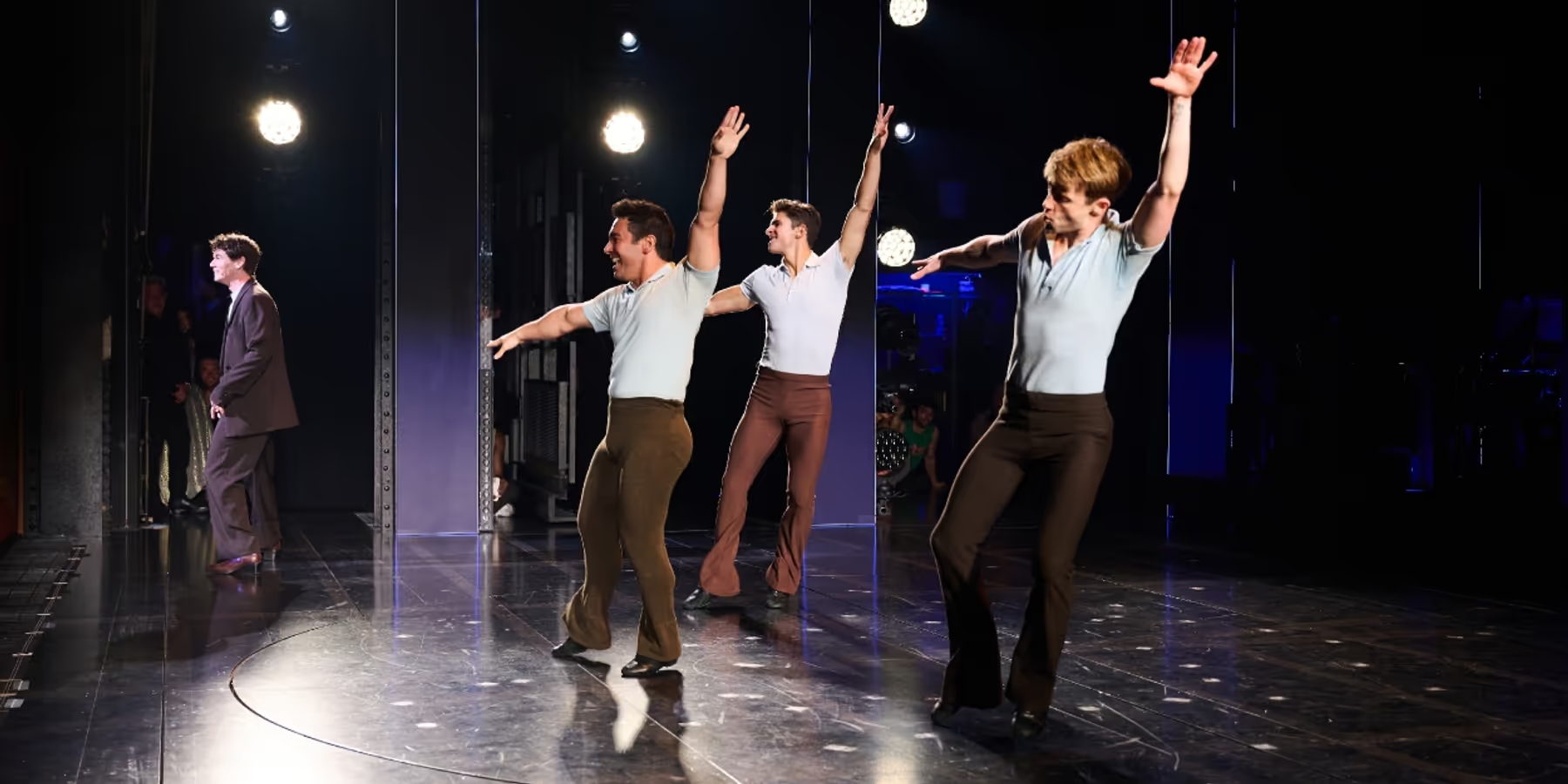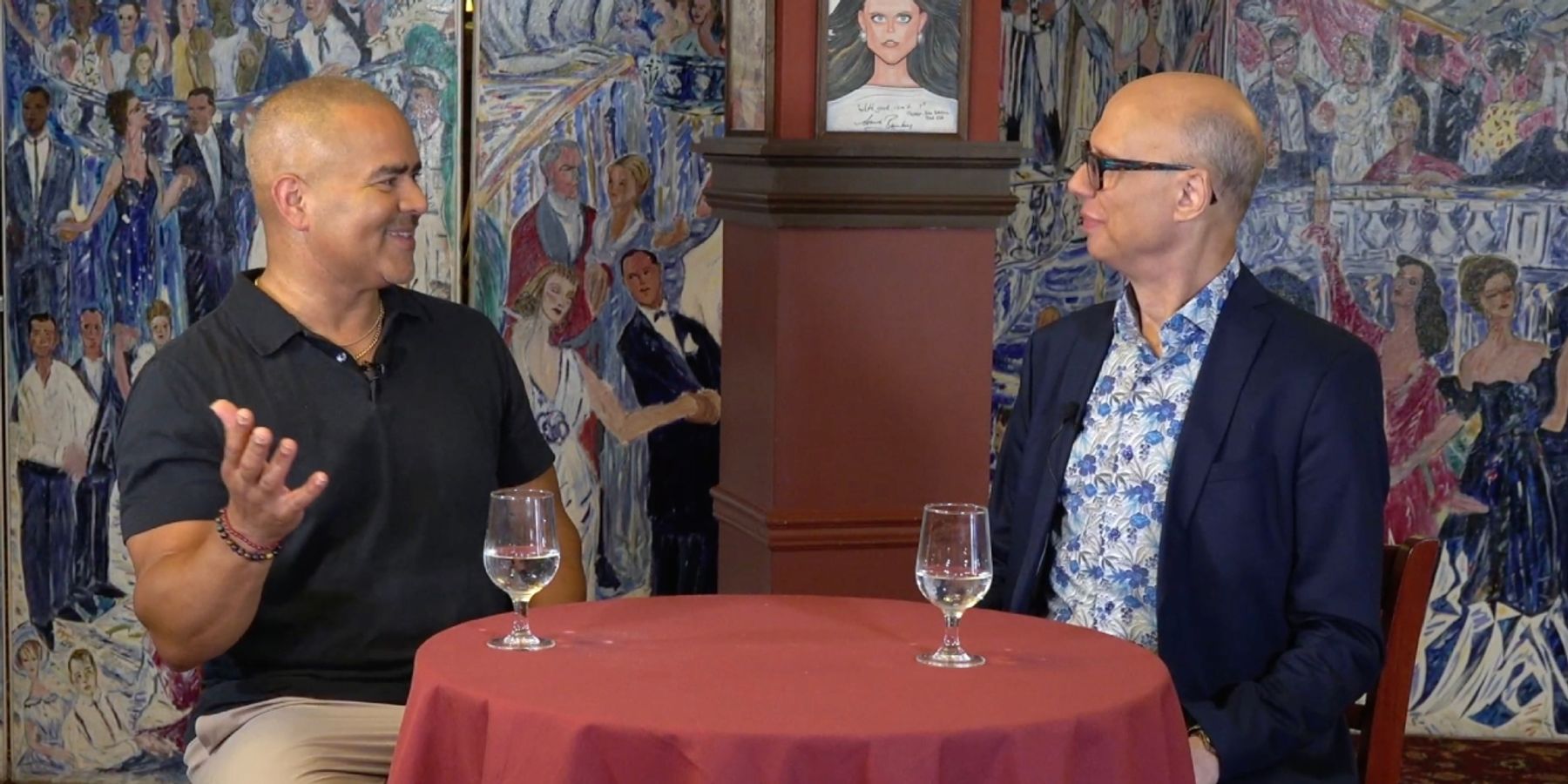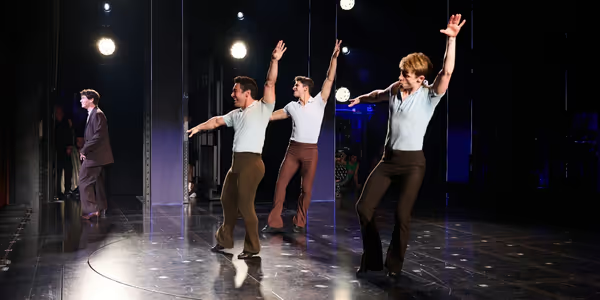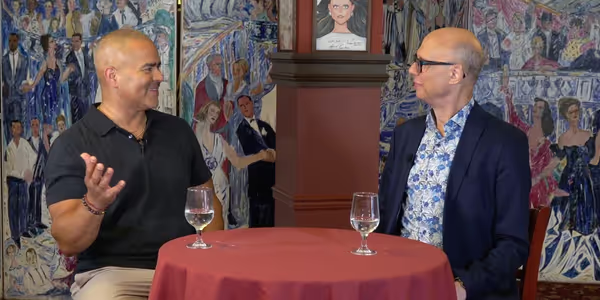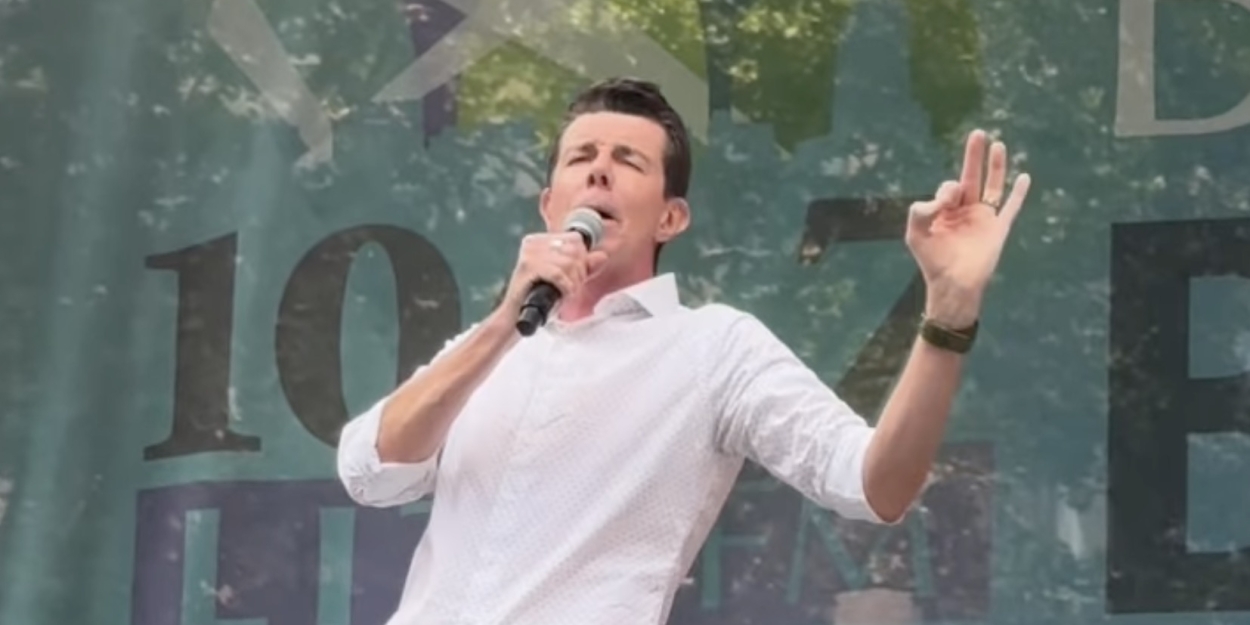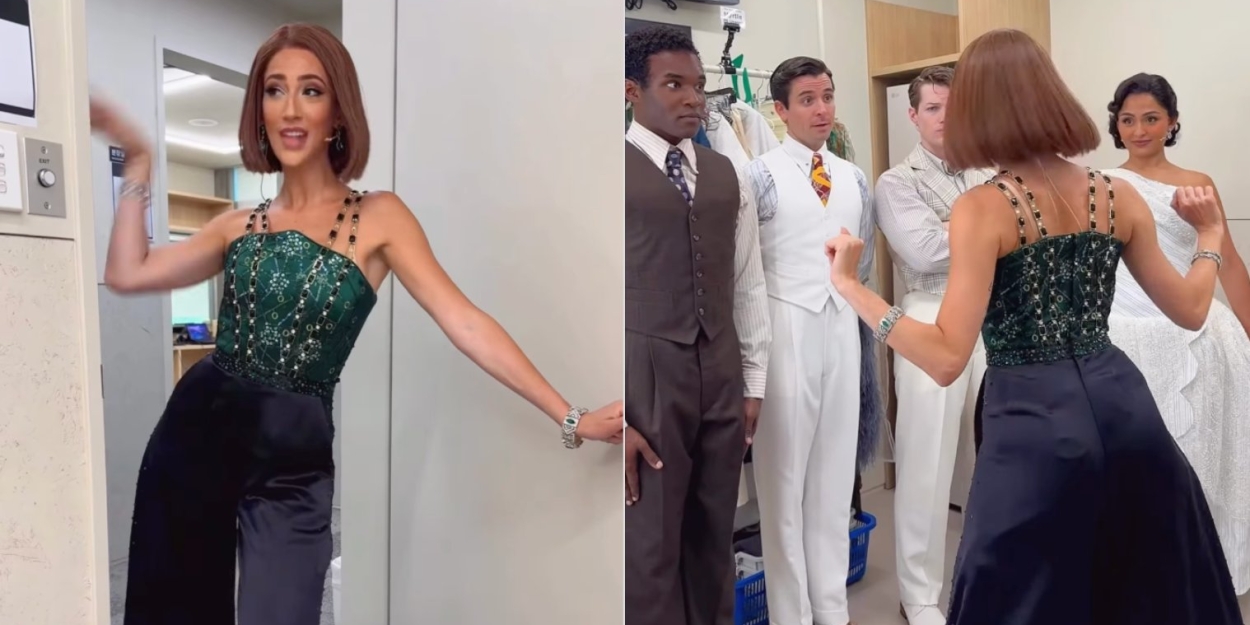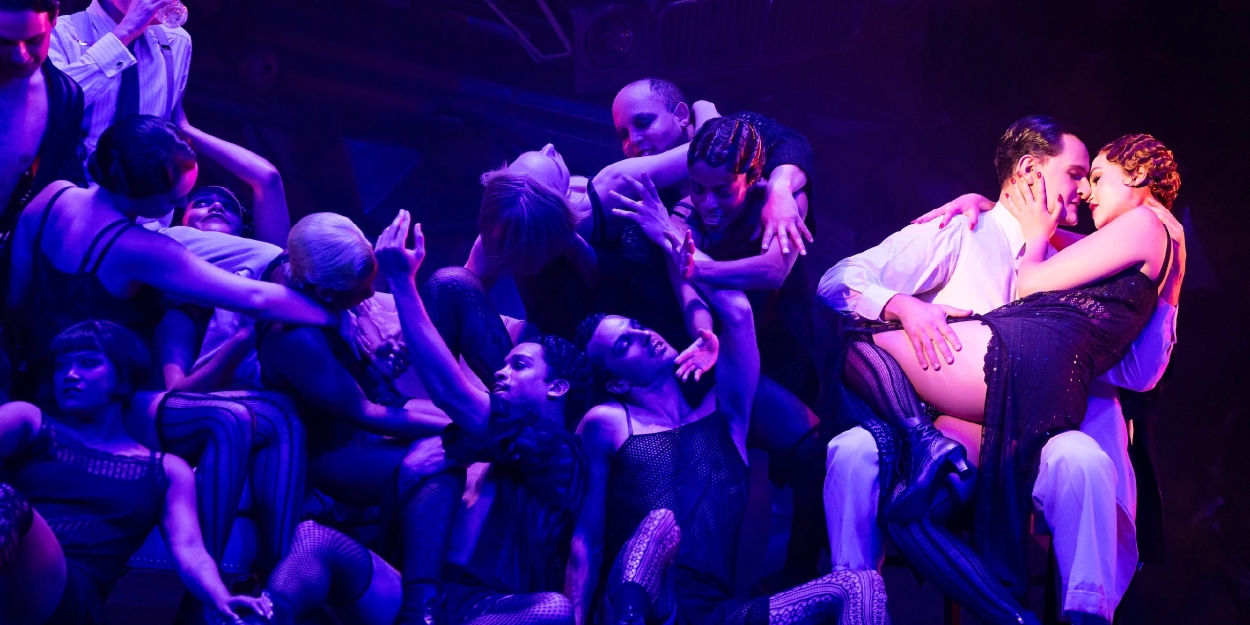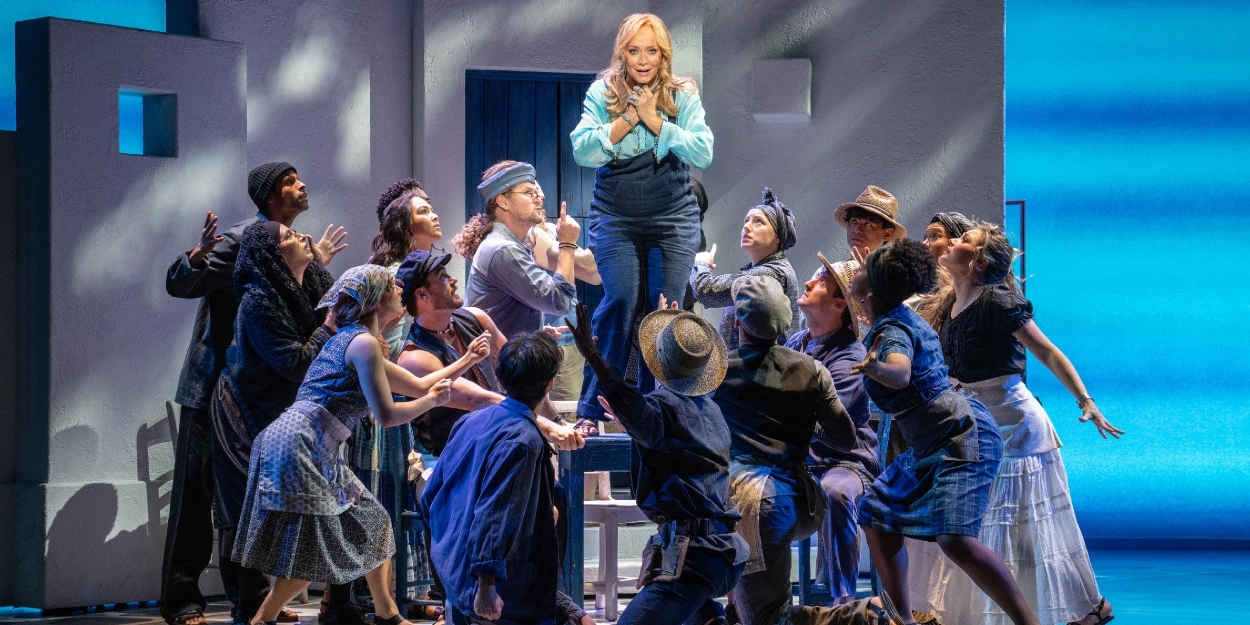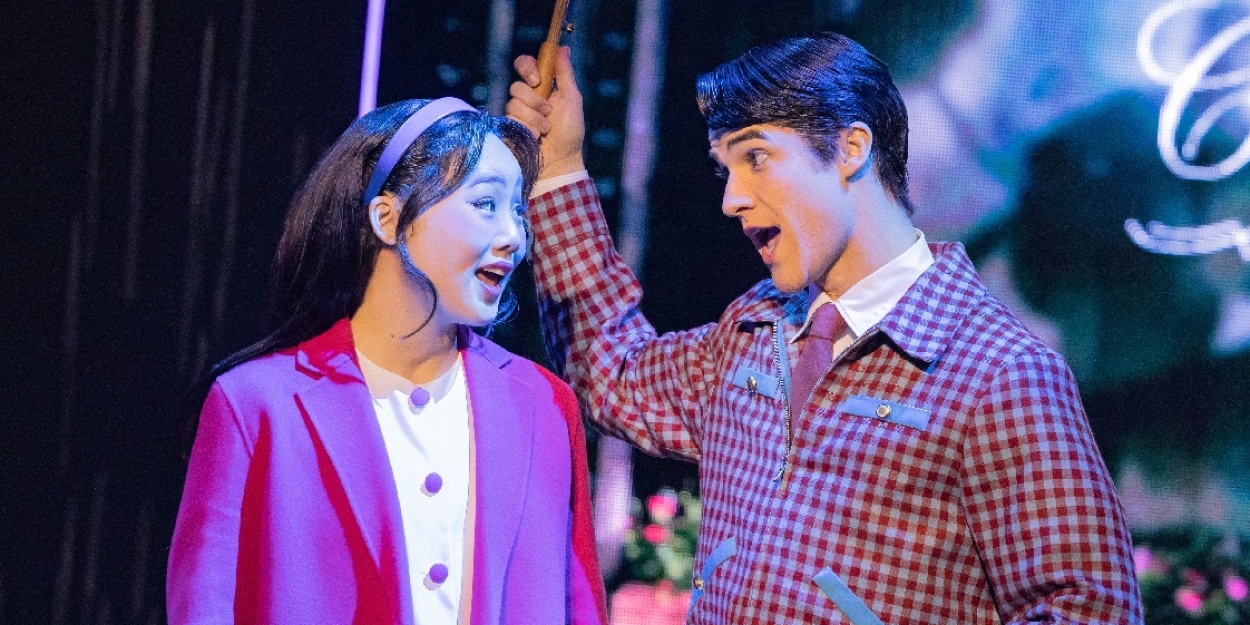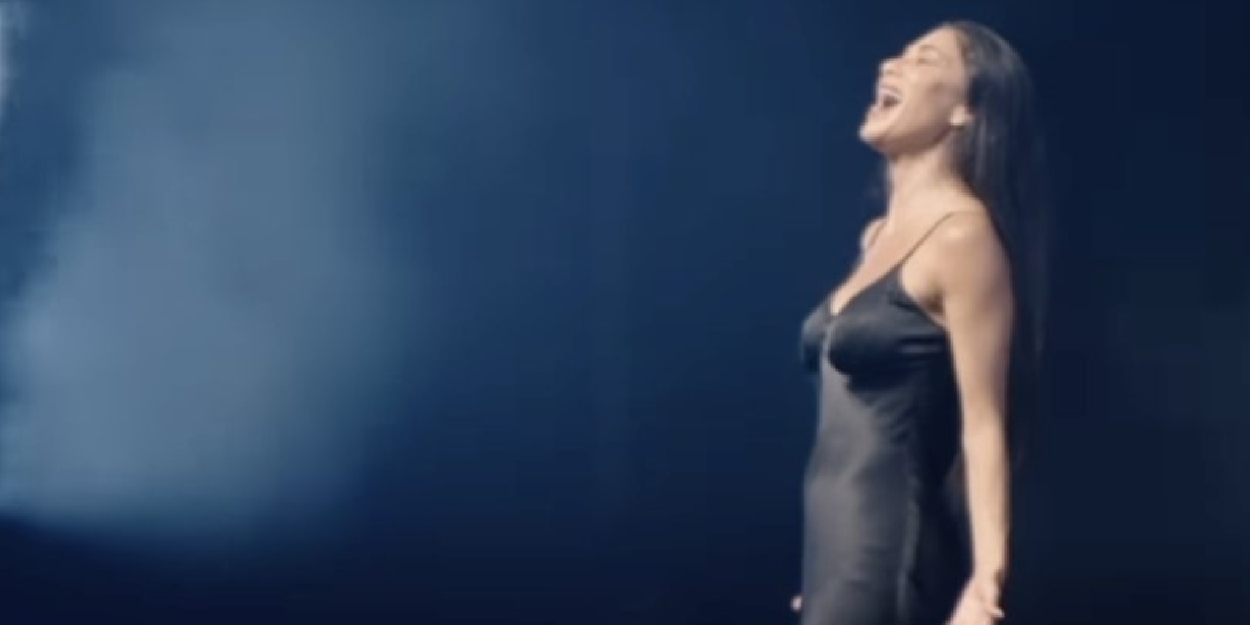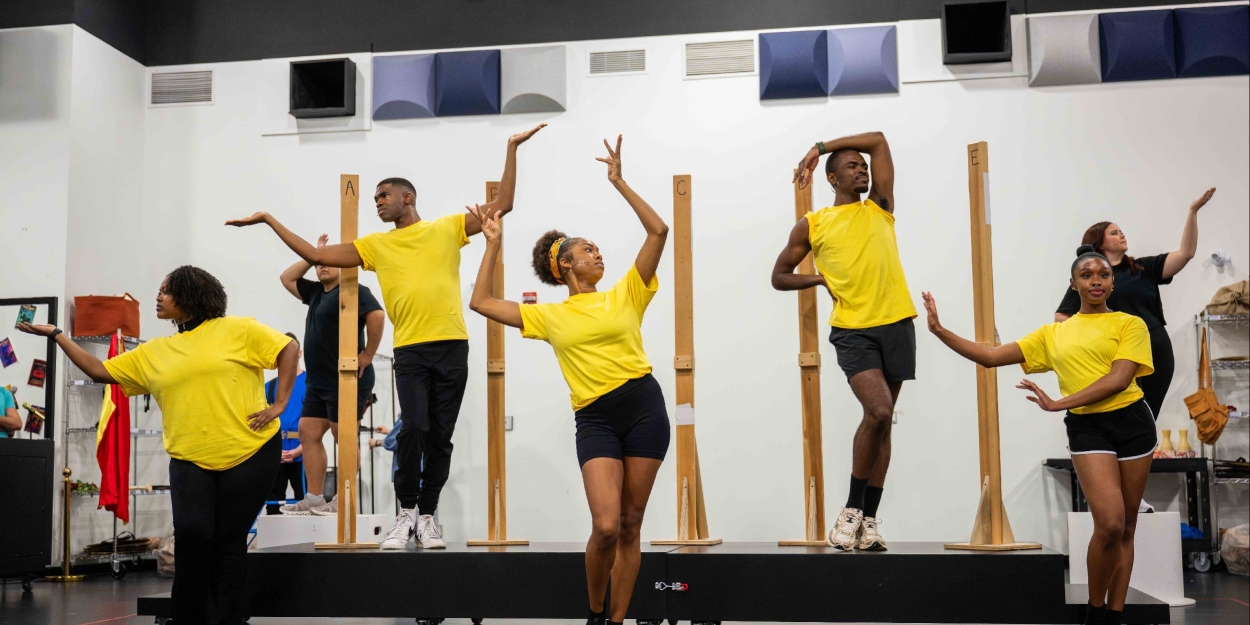- Interview: Ebrin R. Stanley on HAMILTON's 10-Year Legacy
- Photos: Inside A CHORUS LINE's 50th Anniversary Celebration
- Video: And Just Like That... Christopher Jackson Is Back on Broadway
Latest News
Trending Stories
Recommended for You
SUFFS North American Tour Cast & Cities Announced
The tour will have its first public performance on September 8, 2025, at the Capitol Theatre in Yakima, WA.
Rob McClure, Ana Villafañe, and More to Star in DAMN YANKEES
The production will run from September 9 – November 9, 2025.
Marylouise Burke, Renée Elise Goldsberry, and More Will Lead THE BALUSTERS
The production will open in Spring 2026 on Broadway at the Samuel J. Friedman Theatre.
Kerry Butler, Alex Newell, Andrew Durand & More Join BAT BOY at New York City Center
Bat Boy will run October 29 through November 9, 2025 at New York City Center.
Ticket Central
Hot Photos this week
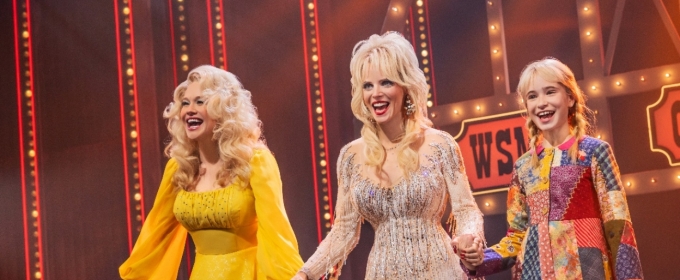 Photo: First Look at DOLLY: A TRUE ORIGINAL MUSICAL
Get a First look at Carrie St. Louis as ‘Dolly,’ Katie Rose Clarke as ‘Dolly Parton,’ and Quinn Titcomb as ‘Little Dolly.’
Photo: First Look at DOLLY: A TRUE ORIGINAL MUSICAL
Get a First look at Carrie St. Louis as ‘Dolly,’ Katie Rose Clarke as ‘Dolly Parton,’ and Quinn Titcomb as ‘Little Dolly.’
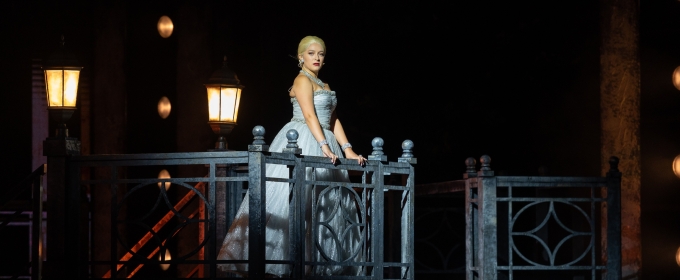 First Look at EVITA at The Muny
Performances run July 18-24.
First Look at EVITA at The Muny
Performances run July 18-24.
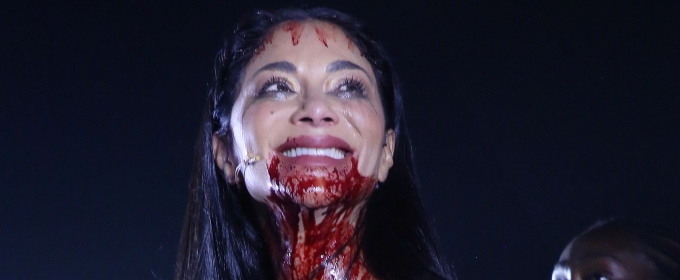 Scherzinger and the Cast of SUNSET BLVD. Take Final Bow
The show played its final performance on July 20 at the St. James Theatre following 20 previews and 312 regular performances.
Scherzinger and the Cast of SUNSET BLVD. Take Final Bow
The show played its final performance on July 20 at the St. James Theatre following 20 previews and 312 regular performances.
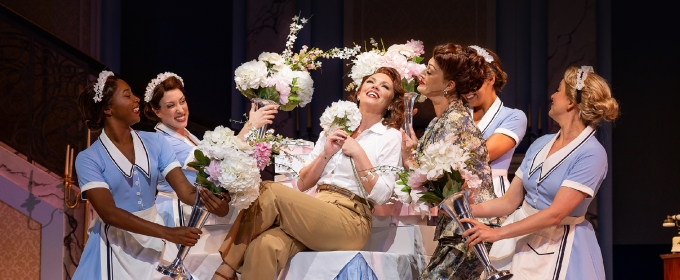 Robyn Hurder, Andrew Durand, and More Star in HIGH SOCIETY at Ogunquit Playhouse
The production runs July 24 through August 23 in Ogunquit, Maine.
Robyn Hurder, Andrew Durand, and More Star in HIGH SOCIETY at Ogunquit Playhouse
The production runs July 24 through August 23 in Ogunquit, Maine.
 Billy Porter and Marisha Wallace in CABARET
Porter and Wallace begin performances on Tuesday, July 22.
Billy Porter and Marisha Wallace in CABARET
Porter and Wallace begin performances on Tuesday, July 22.
 The Hollywood Museum Opens Marx Brothers Exhibit LEGENDS OF LAUGHTER
Exhibit features rare memorabilia, original costumes, and family tributes to comedy legends.
The Hollywood Museum Opens Marx Brothers Exhibit LEGENDS OF LAUGHTER
Exhibit features rare memorabilia, original costumes, and family tributes to comedy legends.
 First Look at EVITA at The Muny
Performances run July 18-24.
First Look at EVITA at The Muny
Performances run July 18-24.
 Scherzinger and the Cast of SUNSET BLVD. Take Final Bow
The show played its final performance on July 20 at the St. James Theatre following 20 previews and 312 regular performances.
Scherzinger and the Cast of SUNSET BLVD. Take Final Bow
The show played its final performance on July 20 at the St. James Theatre following 20 previews and 312 regular performances.
 Robyn Hurder, Andrew Durand, and More Star in HIGH SOCIETY at Ogunquit Playhouse
The production runs July 24 through August 23 in Ogunquit, Maine.
Robyn Hurder, Andrew Durand, and More Star in HIGH SOCIETY at Ogunquit Playhouse
The production runs July 24 through August 23 in Ogunquit, Maine.
 Billy Porter and Marisha Wallace in CABARET
Porter and Wallace begin performances on Tuesday, July 22.
Billy Porter and Marisha Wallace in CABARET
Porter and Wallace begin performances on Tuesday, July 22.
 The Hollywood Museum Opens Marx Brothers Exhibit LEGENDS OF LAUGHTER
Exhibit features rare memorabilia, original costumes, and family tributes to comedy legends.
The Hollywood Museum Opens Marx Brothers Exhibit LEGENDS OF LAUGHTER
Exhibit features rare memorabilia, original costumes, and family tributes to comedy legends.
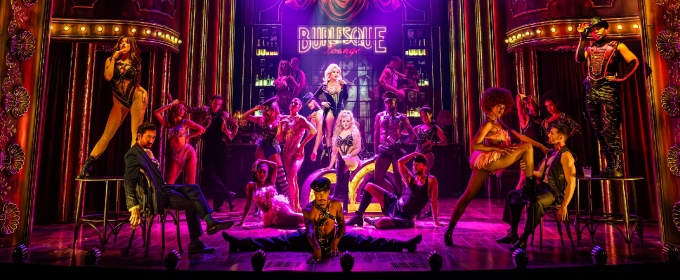 Jess Folley, Todrick Hall and More in BURLESQUE THE MUSICAL in London
The show plays for a limited season until Saturday 6 September 2025.
Jess Folley, Todrick Hall and More in BURLESQUE THE MUSICAL in London
The show plays for a limited season until Saturday 6 September 2025.
 Scherzinger and the Cast of SUNSET BLVD. Take Final Bow
The show played its final performance on July 20 at the St. James Theatre following 20 previews and 312 regular performances.
Scherzinger and the Cast of SUNSET BLVD. Take Final Bow
The show played its final performance on July 20 at the St. James Theatre following 20 previews and 312 regular performances.
 Robyn Hurder, Andrew Durand, and More Star in HIGH SOCIETY at Ogunquit Playhouse
The production runs July 24 through August 23 in Ogunquit, Maine.
Robyn Hurder, Andrew Durand, and More Star in HIGH SOCIETY at Ogunquit Playhouse
The production runs July 24 through August 23 in Ogunquit, Maine.
 Billy Porter and Marisha Wallace in CABARET
Porter and Wallace begin performances on Tuesday, July 22.
Billy Porter and Marisha Wallace in CABARET
Porter and Wallace begin performances on Tuesday, July 22.
 The Hollywood Museum Opens Marx Brothers Exhibit LEGENDS OF LAUGHTER
Exhibit features rare memorabilia, original costumes, and family tributes to comedy legends.
The Hollywood Museum Opens Marx Brothers Exhibit LEGENDS OF LAUGHTER
Exhibit features rare memorabilia, original costumes, and family tributes to comedy legends.
 Jess Folley, Todrick Hall and More in BURLESQUE THE MUSICAL in London
The show plays for a limited season until Saturday 6 September 2025.
Jess Folley, Todrick Hall and More in BURLESQUE THE MUSICAL in London
The show plays for a limited season until Saturday 6 September 2025.
 Cole Escola, Sadie Sink, and More at Opening Night of Josh Sharp's TA-DA!
Performances will continue for a limited run through August 23.
Cole Escola, Sadie Sink, and More at Opening Night of Josh Sharp's TA-DA!
Performances will continue for a limited run through August 23.
 Robyn Hurder, Andrew Durand, and More Star in HIGH SOCIETY at Ogunquit Playhouse
The production runs July 24 through August 23 in Ogunquit, Maine.
Robyn Hurder, Andrew Durand, and More Star in HIGH SOCIETY at Ogunquit Playhouse
The production runs July 24 through August 23 in Ogunquit, Maine.
 Billy Porter and Marisha Wallace in CABARET
Porter and Wallace begin performances on Tuesday, July 22.
Billy Porter and Marisha Wallace in CABARET
Porter and Wallace begin performances on Tuesday, July 22.
 The Hollywood Museum Opens Marx Brothers Exhibit LEGENDS OF LAUGHTER
Exhibit features rare memorabilia, original costumes, and family tributes to comedy legends.
The Hollywood Museum Opens Marx Brothers Exhibit LEGENDS OF LAUGHTER
Exhibit features rare memorabilia, original costumes, and family tributes to comedy legends.
 Jess Folley, Todrick Hall and More in BURLESQUE THE MUSICAL in London
The show plays for a limited season until Saturday 6 September 2025.
Jess Folley, Todrick Hall and More in BURLESQUE THE MUSICAL in London
The show plays for a limited season until Saturday 6 September 2025.
 Cole Escola, Sadie Sink, and More at Opening Night of Josh Sharp's TA-DA!
Performances will continue for a limited run through August 23.
Cole Escola, Sadie Sink, and More at Opening Night of Josh Sharp's TA-DA!
Performances will continue for a limited run through August 23.
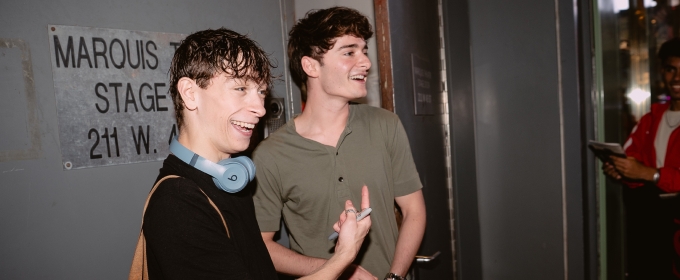 Noah Schnapp Visits STRANGER THINGS on Broadway
The series star joined Tony nominee Louis McCartney, star of the stage show, to surprise Stranger Things fans at the stage door after the performance.
Noah Schnapp Visits STRANGER THINGS on Broadway
The series star joined Tony nominee Louis McCartney, star of the stage show, to surprise Stranger Things fans at the stage door after the performance.
 Billy Porter and Marisha Wallace in CABARET
Porter and Wallace begin performances on Tuesday, July 22.
Billy Porter and Marisha Wallace in CABARET
Porter and Wallace begin performances on Tuesday, July 22.
 The Hollywood Museum Opens Marx Brothers Exhibit LEGENDS OF LAUGHTER
Exhibit features rare memorabilia, original costumes, and family tributes to comedy legends.
The Hollywood Museum Opens Marx Brothers Exhibit LEGENDS OF LAUGHTER
Exhibit features rare memorabilia, original costumes, and family tributes to comedy legends.
 Jess Folley, Todrick Hall and More in BURLESQUE THE MUSICAL in London
The show plays for a limited season until Saturday 6 September 2025.
Jess Folley, Todrick Hall and More in BURLESQUE THE MUSICAL in London
The show plays for a limited season until Saturday 6 September 2025.
 Cole Escola, Sadie Sink, and More at Opening Night of Josh Sharp's TA-DA!
Performances will continue for a limited run through August 23.
Cole Escola, Sadie Sink, and More at Opening Night of Josh Sharp's TA-DA!
Performances will continue for a limited run through August 23.
 Noah Schnapp Visits STRANGER THINGS on Broadway
The series star joined Tony nominee Louis McCartney, star of the stage show, to surprise Stranger Things fans at the stage door after the performance.
Noah Schnapp Visits STRANGER THINGS on Broadway
The series star joined Tony nominee Louis McCartney, star of the stage show, to surprise Stranger Things fans at the stage door after the performance.
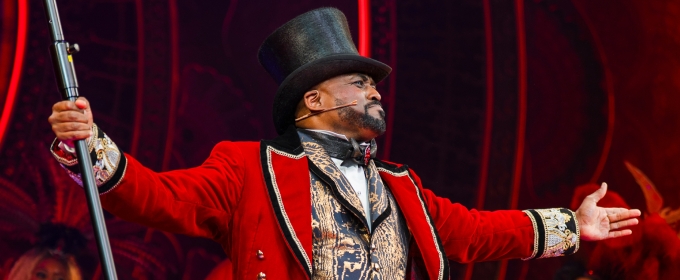 Wayne Brady and Taye Diggs Join the Cast of MOULIN ROUGE! THE MUSICAL
Diggs plays through September 28, with Brady staying through November 9.
Wayne Brady and Taye Diggs Join the Cast of MOULIN ROUGE! THE MUSICAL
Diggs plays through September 28, with Brady staying through November 9.
 The Hollywood Museum Opens Marx Brothers Exhibit LEGENDS OF LAUGHTER
Exhibit features rare memorabilia, original costumes, and family tributes to comedy legends.
The Hollywood Museum Opens Marx Brothers Exhibit LEGENDS OF LAUGHTER
Exhibit features rare memorabilia, original costumes, and family tributes to comedy legends.
 Jess Folley, Todrick Hall and More in BURLESQUE THE MUSICAL in London
The show plays for a limited season until Saturday 6 September 2025.
Jess Folley, Todrick Hall and More in BURLESQUE THE MUSICAL in London
The show plays for a limited season until Saturday 6 September 2025.
 Cole Escola, Sadie Sink, and More at Opening Night of Josh Sharp's TA-DA!
Performances will continue for a limited run through August 23.
Cole Escola, Sadie Sink, and More at Opening Night of Josh Sharp's TA-DA!
Performances will continue for a limited run through August 23.
 Noah Schnapp Visits STRANGER THINGS on Broadway
The series star joined Tony nominee Louis McCartney, star of the stage show, to surprise Stranger Things fans at the stage door after the performance.
Noah Schnapp Visits STRANGER THINGS on Broadway
The series star joined Tony nominee Louis McCartney, star of the stage show, to surprise Stranger Things fans at the stage door after the performance.
 Wayne Brady and Taye Diggs Join the Cast of MOULIN ROUGE! THE MUSICAL
Diggs plays through September 28, with Brady staying through November 9.
Wayne Brady and Taye Diggs Join the Cast of MOULIN ROUGE! THE MUSICAL
Diggs plays through September 28, with Brady staying through November 9.
 Taye Diggs and Wayne Brady in MOULIN ROUGE! THE MUSICAL
Taye Diggs plays through September 28, with Wayne Brady staying through November 9.
Taye Diggs and Wayne Brady in MOULIN ROUGE! THE MUSICAL
Taye Diggs plays through September 28, with Wayne Brady staying through November 9.
 Jess Folley, Todrick Hall and More in BURLESQUE THE MUSICAL in London
The show plays for a limited season until Saturday 6 September 2025.
Jess Folley, Todrick Hall and More in BURLESQUE THE MUSICAL in London
The show plays for a limited season until Saturday 6 September 2025.
 Cole Escola, Sadie Sink, and More at Opening Night of Josh Sharp's TA-DA!
Performances will continue for a limited run through August 23.
Cole Escola, Sadie Sink, and More at Opening Night of Josh Sharp's TA-DA!
Performances will continue for a limited run through August 23.
 Noah Schnapp Visits STRANGER THINGS on Broadway
The series star joined Tony nominee Louis McCartney, star of the stage show, to surprise Stranger Things fans at the stage door after the performance.
Noah Schnapp Visits STRANGER THINGS on Broadway
The series star joined Tony nominee Louis McCartney, star of the stage show, to surprise Stranger Things fans at the stage door after the performance.
 Wayne Brady and Taye Diggs Join the Cast of MOULIN ROUGE! THE MUSICAL
Diggs plays through September 28, with Brady staying through November 9.
Wayne Brady and Taye Diggs Join the Cast of MOULIN ROUGE! THE MUSICAL
Diggs plays through September 28, with Brady staying through November 9.
 Taye Diggs and Wayne Brady in MOULIN ROUGE! THE MUSICAL
Taye Diggs plays through September 28, with Wayne Brady staying through November 9.
Taye Diggs and Wayne Brady in MOULIN ROUGE! THE MUSICAL
Taye Diggs plays through September 28, with Wayne Brady staying through November 9.
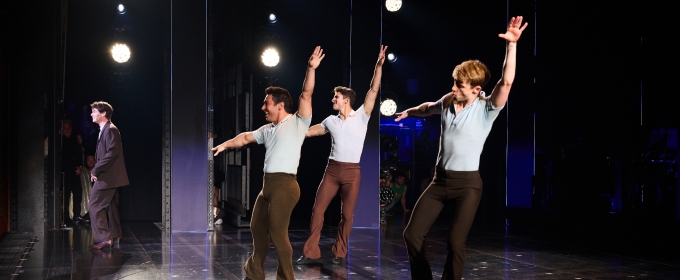 Inside A CHORUS LINE's 50th Anniversary Celebration
The event featured original stars Baayork Lee, Kelly Bishop, Wayne Cilento,
Inside A CHORUS LINE's 50th Anniversary Celebration
The event featured original stars Baayork Lee, Kelly Bishop, Wayne Cilento,
 Cole Escola, Sadie Sink, and More at Opening Night of Josh Sharp's TA-DA!
Performances will continue for a limited run through August 23.
Cole Escola, Sadie Sink, and More at Opening Night of Josh Sharp's TA-DA!
Performances will continue for a limited run through August 23.
 Noah Schnapp Visits STRANGER THINGS on Broadway
The series star joined Tony nominee Louis McCartney, star of the stage show, to surprise Stranger Things fans at the stage door after the performance.
Noah Schnapp Visits STRANGER THINGS on Broadway
The series star joined Tony nominee Louis McCartney, star of the stage show, to surprise Stranger Things fans at the stage door after the performance.
 Wayne Brady and Taye Diggs Join the Cast of MOULIN ROUGE! THE MUSICAL
Diggs plays through September 28, with Brady staying through November 9.
Wayne Brady and Taye Diggs Join the Cast of MOULIN ROUGE! THE MUSICAL
Diggs plays through September 28, with Brady staying through November 9.
 Taye Diggs and Wayne Brady in MOULIN ROUGE! THE MUSICAL
Taye Diggs plays through September 28, with Wayne Brady staying through November 9.
Taye Diggs and Wayne Brady in MOULIN ROUGE! THE MUSICAL
Taye Diggs plays through September 28, with Wayne Brady staying through November 9.
 Inside A CHORUS LINE's 50th Anniversary Celebration
The event featured original stars Baayork Lee, Kelly Bishop, Wayne Cilento,
Inside A CHORUS LINE's 50th Anniversary Celebration
The event featured original stars Baayork Lee, Kelly Bishop, Wayne Cilento,
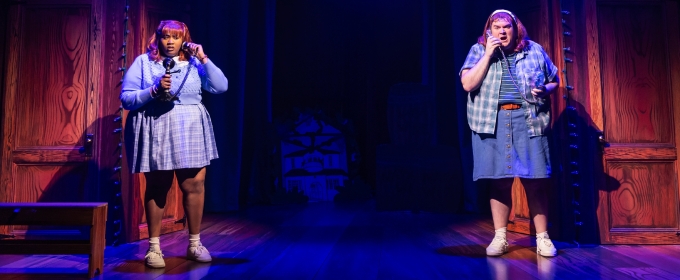 GINGER TWINSIES World Premiere First Look
Performances began on July 10, 2025, for the strictly limited, 16-week engagement through October 26, 2025.
GINGER TWINSIES World Premiere First Look
Performances began on July 10, 2025, for the strictly limited, 16-week engagement through October 26, 2025.
 Noah Schnapp Visits STRANGER THINGS on Broadway
The series star joined Tony nominee Louis McCartney, star of the stage show, to surprise Stranger Things fans at the stage door after the performance.
Noah Schnapp Visits STRANGER THINGS on Broadway
The series star joined Tony nominee Louis McCartney, star of the stage show, to surprise Stranger Things fans at the stage door after the performance.
 Wayne Brady and Taye Diggs Join the Cast of MOULIN ROUGE! THE MUSICAL
Diggs plays through September 28, with Brady staying through November 9.
Wayne Brady and Taye Diggs Join the Cast of MOULIN ROUGE! THE MUSICAL
Diggs plays through September 28, with Brady staying through November 9.
 Taye Diggs and Wayne Brady in MOULIN ROUGE! THE MUSICAL
Taye Diggs plays through September 28, with Wayne Brady staying through November 9.
Taye Diggs and Wayne Brady in MOULIN ROUGE! THE MUSICAL
Taye Diggs plays through September 28, with Wayne Brady staying through November 9.
 Inside A CHORUS LINE's 50th Anniversary Celebration
The event featured original stars Baayork Lee, Kelly Bishop, Wayne Cilento,
Inside A CHORUS LINE's 50th Anniversary Celebration
The event featured original stars Baayork Lee, Kelly Bishop, Wayne Cilento,
 GINGER TWINSIES World Premiere First Look
Performances began on July 10, 2025, for the strictly limited, 16-week engagement through October 26, 2025.
GINGER TWINSIES World Premiere First Look
Performances began on July 10, 2025, for the strictly limited, 16-week engagement through October 26, 2025.
 Inside Barrington Stage's Gala A NIGHT ON THE RED CARPET
The event was held on Monday, July 21.
Inside Barrington Stage's Gala A NIGHT ON THE RED CARPET
The event was held on Monday, July 21.
 Wayne Brady and Taye Diggs Join the Cast of MOULIN ROUGE! THE MUSICAL
Diggs plays through September 28, with Brady staying through November 9.
Wayne Brady and Taye Diggs Join the Cast of MOULIN ROUGE! THE MUSICAL
Diggs plays through September 28, with Brady staying through November 9.
 Taye Diggs and Wayne Brady in MOULIN ROUGE! THE MUSICAL
Taye Diggs plays through September 28, with Wayne Brady staying through November 9.
Taye Diggs and Wayne Brady in MOULIN ROUGE! THE MUSICAL
Taye Diggs plays through September 28, with Wayne Brady staying through November 9.
 Inside A CHORUS LINE's 50th Anniversary Celebration
The event featured original stars Baayork Lee, Kelly Bishop, Wayne Cilento,
Inside A CHORUS LINE's 50th Anniversary Celebration
The event featured original stars Baayork Lee, Kelly Bishop, Wayne Cilento,
 GINGER TWINSIES World Premiere First Look
Performances began on July 10, 2025, for the strictly limited, 16-week engagement through October 26, 2025.
GINGER TWINSIES World Premiere First Look
Performances began on July 10, 2025, for the strictly limited, 16-week engagement through October 26, 2025.
 Inside Barrington Stage's Gala A NIGHT ON THE RED CARPET
The event was held on Monday, July 21.
Inside Barrington Stage's Gala A NIGHT ON THE RED CARPET
The event was held on Monday, July 21.
 GINGER TWINSIES Celebrates Its Star-Studded Opening Night
The cast was joined by many familiar faces including Jesse Tyler Ferguson, Lin-Manuel Miranda, Busy Phillips, and more.
GINGER TWINSIES Celebrates Its Star-Studded Opening Night
The cast was joined by many familiar faces including Jesse Tyler Ferguson, Lin-Manuel Miranda, Busy Phillips, and more.
 Taye Diggs and Wayne Brady in MOULIN ROUGE! THE MUSICAL
Taye Diggs plays through September 28, with Wayne Brady staying through November 9.
Taye Diggs and Wayne Brady in MOULIN ROUGE! THE MUSICAL
Taye Diggs plays through September 28, with Wayne Brady staying through November 9.
 Inside A CHORUS LINE's 50th Anniversary Celebration
The event featured original stars Baayork Lee, Kelly Bishop, Wayne Cilento,
Inside A CHORUS LINE's 50th Anniversary Celebration
The event featured original stars Baayork Lee, Kelly Bishop, Wayne Cilento,
 GINGER TWINSIES World Premiere First Look
Performances began on July 10, 2025, for the strictly limited, 16-week engagement through October 26, 2025.
GINGER TWINSIES World Premiere First Look
Performances began on July 10, 2025, for the strictly limited, 16-week engagement through October 26, 2025.
 Inside Barrington Stage's Gala A NIGHT ON THE RED CARPET
The event was held on Monday, July 21.
Inside Barrington Stage's Gala A NIGHT ON THE RED CARPET
The event was held on Monday, July 21.
 GINGER TWINSIES Celebrates Its Star-Studded Opening Night
The cast was joined by many familiar faces including Jesse Tyler Ferguson, Lin-Manuel Miranda, Busy Phillips, and more.
GINGER TWINSIES Celebrates Its Star-Studded Opening Night
The cast was joined by many familiar faces including Jesse Tyler Ferguson, Lin-Manuel Miranda, Busy Phillips, and more.
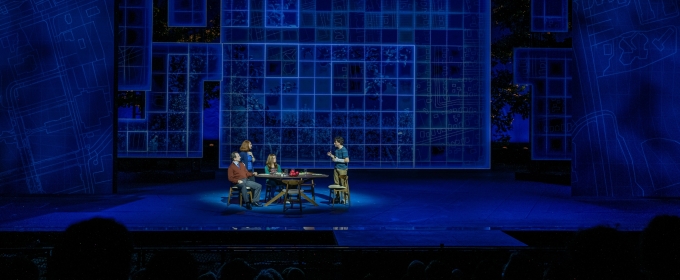 Michael Fabisch, Rob McClure, Jackie Burns and More in DEAR EVAN HANSEN at The Muny
The musical is now running through August 3.
Michael Fabisch, Rob McClure, Jackie Burns and More in DEAR EVAN HANSEN at The Muny
The musical is now running through August 3.
 Inside A CHORUS LINE's 50th Anniversary Celebration
The event featured original stars Baayork Lee, Kelly Bishop, Wayne Cilento,
Inside A CHORUS LINE's 50th Anniversary Celebration
The event featured original stars Baayork Lee, Kelly Bishop, Wayne Cilento,
 GINGER TWINSIES World Premiere First Look
Performances began on July 10, 2025, for the strictly limited, 16-week engagement through October 26, 2025.
GINGER TWINSIES World Premiere First Look
Performances began on July 10, 2025, for the strictly limited, 16-week engagement through October 26, 2025.
 Inside Barrington Stage's Gala A NIGHT ON THE RED CARPET
The event was held on Monday, July 21.
Inside Barrington Stage's Gala A NIGHT ON THE RED CARPET
The event was held on Monday, July 21.
 GINGER TWINSIES Celebrates Its Star-Studded Opening Night
The cast was joined by many familiar faces including Jesse Tyler Ferguson, Lin-Manuel Miranda, Busy Phillips, and more.
GINGER TWINSIES Celebrates Its Star-Studded Opening Night
The cast was joined by many familiar faces including Jesse Tyler Ferguson, Lin-Manuel Miranda, Busy Phillips, and more.
 Michael Fabisch, Rob McClure, Jackie Burns and More in DEAR EVAN HANSEN at The Muny
The musical is now running through August 3.
Michael Fabisch, Rob McClure, Jackie Burns and More in DEAR EVAN HANSEN at The Muny
The musical is now running through August 3.
 MAMMA MIA! Returns to the Winter Garden Theatre
The limited engagement will play for six months only, through Sunday, February 1, 2026.
MAMMA MIA! Returns to the Winter Garden Theatre
The limited engagement will play for six months only, through Sunday, February 1, 2026.
 GINGER TWINSIES World Premiere First Look
Performances began on July 10, 2025, for the strictly limited, 16-week engagement through October 26, 2025.
GINGER TWINSIES World Premiere First Look
Performances began on July 10, 2025, for the strictly limited, 16-week engagement through October 26, 2025.
 Inside Barrington Stage's Gala A NIGHT ON THE RED CARPET
The event was held on Monday, July 21.
Inside Barrington Stage's Gala A NIGHT ON THE RED CARPET
The event was held on Monday, July 21.
 GINGER TWINSIES Celebrates Its Star-Studded Opening Night
The cast was joined by many familiar faces including Jesse Tyler Ferguson, Lin-Manuel Miranda, Busy Phillips, and more.
GINGER TWINSIES Celebrates Its Star-Studded Opening Night
The cast was joined by many familiar faces including Jesse Tyler Ferguson, Lin-Manuel Miranda, Busy Phillips, and more.
 Michael Fabisch, Rob McClure, Jackie Burns and More in DEAR EVAN HANSEN at The Muny
The musical is now running through August 3.
Michael Fabisch, Rob McClure, Jackie Burns and More in DEAR EVAN HANSEN at The Muny
The musical is now running through August 3.
 MAMMA MIA! Returns to the Winter Garden Theatre
The limited engagement will play for six months only, through Sunday, February 1, 2026.
MAMMA MIA! Returns to the Winter Garden Theatre
The limited engagement will play for six months only, through Sunday, February 1, 2026.
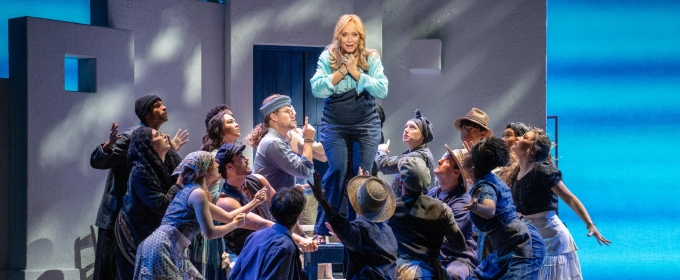 First Look at MAMMA MIA! as it Returns to Broadway
Performances begin this Saturday night, August 2 at the Winter Garden Theatre.
First Look at MAMMA MIA! as it Returns to Broadway
Performances begin this Saturday night, August 2 at the Winter Garden Theatre.
 Inside Barrington Stage's Gala A NIGHT ON THE RED CARPET
The event was held on Monday, July 21.
Inside Barrington Stage's Gala A NIGHT ON THE RED CARPET
The event was held on Monday, July 21.
 GINGER TWINSIES Celebrates Its Star-Studded Opening Night
The cast was joined by many familiar faces including Jesse Tyler Ferguson, Lin-Manuel Miranda, Busy Phillips, and more.
GINGER TWINSIES Celebrates Its Star-Studded Opening Night
The cast was joined by many familiar faces including Jesse Tyler Ferguson, Lin-Manuel Miranda, Busy Phillips, and more.
 Michael Fabisch, Rob McClure, Jackie Burns and More in DEAR EVAN HANSEN at The Muny
The musical is now running through August 3.
Michael Fabisch, Rob McClure, Jackie Burns and More in DEAR EVAN HANSEN at The Muny
The musical is now running through August 3.
 MAMMA MIA! Returns to the Winter Garden Theatre
The limited engagement will play for six months only, through Sunday, February 1, 2026.
MAMMA MIA! Returns to the Winter Garden Theatre
The limited engagement will play for six months only, through Sunday, February 1, 2026.
 First Look at MAMMA MIA! as it Returns to Broadway
Performances begin this Saturday night, August 2 at the Winter Garden Theatre.
First Look at MAMMA MIA! as it Returns to Broadway
Performances begin this Saturday night, August 2 at the Winter Garden Theatre.
 Porter and Wallace Meet the Press Ahead of CABARET Run
They began performances on Tuesday, July 22 and continue for the production’s final 13 weeks through Sunday, October 19.
Porter and Wallace Meet the Press Ahead of CABARET Run
They began performances on Tuesday, July 22 and continue for the production’s final 13 weeks through Sunday, October 19.
 GINGER TWINSIES Celebrates Its Star-Studded Opening Night
The cast was joined by many familiar faces including Jesse Tyler Ferguson, Lin-Manuel Miranda, Busy Phillips, and more.
GINGER TWINSIES Celebrates Its Star-Studded Opening Night
The cast was joined by many familiar faces including Jesse Tyler Ferguson, Lin-Manuel Miranda, Busy Phillips, and more.
 Michael Fabisch, Rob McClure, Jackie Burns and More in DEAR EVAN HANSEN at The Muny
The musical is now running through August 3.
Michael Fabisch, Rob McClure, Jackie Burns and More in DEAR EVAN HANSEN at The Muny
The musical is now running through August 3.
 MAMMA MIA! Returns to the Winter Garden Theatre
The limited engagement will play for six months only, through Sunday, February 1, 2026.
MAMMA MIA! Returns to the Winter Garden Theatre
The limited engagement will play for six months only, through Sunday, February 1, 2026.
 First Look at MAMMA MIA! as it Returns to Broadway
Performances begin this Saturday night, August 2 at the Winter Garden Theatre.
First Look at MAMMA MIA! as it Returns to Broadway
Performances begin this Saturday night, August 2 at the Winter Garden Theatre.
 Porter and Wallace Meet the Press Ahead of CABARET Run
They began performances on Tuesday, July 22 and continue for the production’s final 13 weeks through Sunday, October 19.
Porter and Wallace Meet the Press Ahead of CABARET Run
They began performances on Tuesday, July 22 and continue for the production’s final 13 weeks through Sunday, October 19.
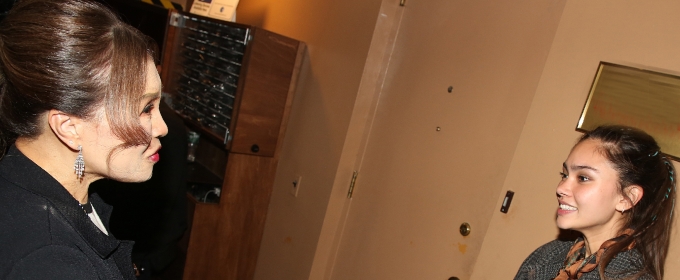 Princess of Thailand Visits HADESTOWN on Broadway
She attended the show to visit Hadestown cast member Myra Molloy, who plays Eurydice and is originally from Thailand. See photos here!
Princess of Thailand Visits HADESTOWN on Broadway
She attended the show to visit Hadestown cast member Myra Molloy, who plays Eurydice and is originally from Thailand. See photos here!
 Michael Fabisch, Rob McClure, Jackie Burns and More in DEAR EVAN HANSEN at The Muny
The musical is now running through August 3.
Michael Fabisch, Rob McClure, Jackie Burns and More in DEAR EVAN HANSEN at The Muny
The musical is now running through August 3.
 MAMMA MIA! Returns to the Winter Garden Theatre
The limited engagement will play for six months only, through Sunday, February 1, 2026.
MAMMA MIA! Returns to the Winter Garden Theatre
The limited engagement will play for six months only, through Sunday, February 1, 2026.
 First Look at MAMMA MIA! as it Returns to Broadway
Performances begin this Saturday night, August 2 at the Winter Garden Theatre.
First Look at MAMMA MIA! as it Returns to Broadway
Performances begin this Saturday night, August 2 at the Winter Garden Theatre.
 Porter and Wallace Meet the Press Ahead of CABARET Run
They began performances on Tuesday, July 22 and continue for the production’s final 13 weeks through Sunday, October 19.
Porter and Wallace Meet the Press Ahead of CABARET Run
They began performances on Tuesday, July 22 and continue for the production’s final 13 weeks through Sunday, October 19.
 Princess of Thailand Visits HADESTOWN on Broadway
She attended the show to visit Hadestown cast member Myra Molloy, who plays Eurydice and is originally from Thailand. See photos here!
Princess of Thailand Visits HADESTOWN on Broadway
She attended the show to visit Hadestown cast member Myra Molloy, who plays Eurydice and is originally from Thailand. See photos here!
 On the Opening Night Red Carpet for GINGER TWINSIES
Ginger Twinsies is running off-Broadway at the Orpheum Theatre.
On the Opening Night Red Carpet for GINGER TWINSIES
Ginger Twinsies is running off-Broadway at the Orpheum Theatre.
 MAMMA MIA! Returns to the Winter Garden Theatre
The limited engagement will play for six months only, through Sunday, February 1, 2026.
MAMMA MIA! Returns to the Winter Garden Theatre
The limited engagement will play for six months only, through Sunday, February 1, 2026.
 First Look at MAMMA MIA! as it Returns to Broadway
Performances begin this Saturday night, August 2 at the Winter Garden Theatre.
First Look at MAMMA MIA! as it Returns to Broadway
Performances begin this Saturday night, August 2 at the Winter Garden Theatre.
 Porter and Wallace Meet the Press Ahead of CABARET Run
They began performances on Tuesday, July 22 and continue for the production’s final 13 weeks through Sunday, October 19.
Porter and Wallace Meet the Press Ahead of CABARET Run
They began performances on Tuesday, July 22 and continue for the production’s final 13 weeks through Sunday, October 19.
 Princess of Thailand Visits HADESTOWN on Broadway
She attended the show to visit Hadestown cast member Myra Molloy, who plays Eurydice and is originally from Thailand. See photos here!
Princess of Thailand Visits HADESTOWN on Broadway
She attended the show to visit Hadestown cast member Myra Molloy, who plays Eurydice and is originally from Thailand. See photos here!
 On the Opening Night Red Carpet for GINGER TWINSIES
Ginger Twinsies is running off-Broadway at the Orpheum Theatre.
On the Opening Night Red Carpet for GINGER TWINSIES
Ginger Twinsies is running off-Broadway at the Orpheum Theatre.
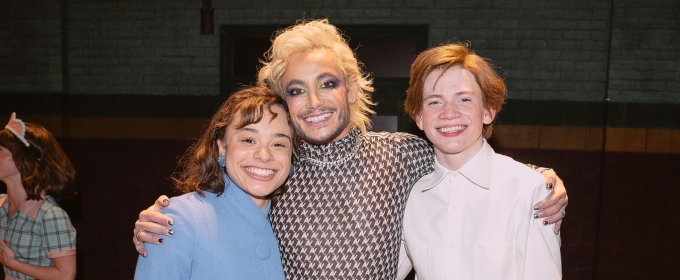 Frankie Grande Visits STRANGER THINGS: THE FIRST SHADOW
He saw the show two days in a row this week, bringing his mother Joan to the show to meet the cast as well.
Frankie Grande Visits STRANGER THINGS: THE FIRST SHADOW
He saw the show two days in a row this week, bringing his mother Joan to the show to meet the cast as well.
 First Look at MAMMA MIA! as it Returns to Broadway
Performances begin this Saturday night, August 2 at the Winter Garden Theatre.
First Look at MAMMA MIA! as it Returns to Broadway
Performances begin this Saturday night, August 2 at the Winter Garden Theatre.
 Porter and Wallace Meet the Press Ahead of CABARET Run
They began performances on Tuesday, July 22 and continue for the production’s final 13 weeks through Sunday, October 19.
Porter and Wallace Meet the Press Ahead of CABARET Run
They began performances on Tuesday, July 22 and continue for the production’s final 13 weeks through Sunday, October 19.
 Princess of Thailand Visits HADESTOWN on Broadway
She attended the show to visit Hadestown cast member Myra Molloy, who plays Eurydice and is originally from Thailand. See photos here!
Princess of Thailand Visits HADESTOWN on Broadway
She attended the show to visit Hadestown cast member Myra Molloy, who plays Eurydice and is originally from Thailand. See photos here!
 On the Opening Night Red Carpet for GINGER TWINSIES
Ginger Twinsies is running off-Broadway at the Orpheum Theatre.
On the Opening Night Red Carpet for GINGER TWINSIES
Ginger Twinsies is running off-Broadway at the Orpheum Theatre.
 Frankie Grande Visits STRANGER THINGS: THE FIRST SHADOW
He saw the show two days in a row this week, bringing his mother Joan to the show to meet the cast as well.
Frankie Grande Visits STRANGER THINGS: THE FIRST SHADOW
He saw the show two days in a row this week, bringing his mother Joan to the show to meet the cast as well.
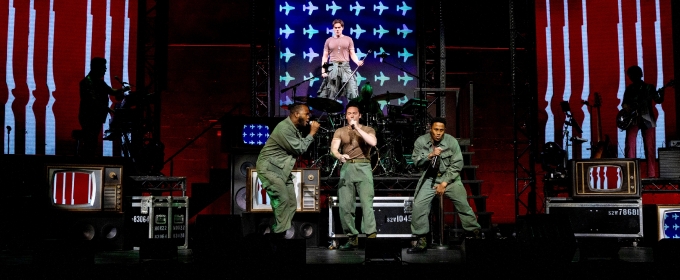 First Look at ROLLING THUNDER Off-Broadway
Rolling Thunder will open July 24 at New World Stages.
First Look at ROLLING THUNDER Off-Broadway
Rolling Thunder will open July 24 at New World Stages.
 Porter and Wallace Meet the Press Ahead of CABARET Run
They began performances on Tuesday, July 22 and continue for the production’s final 13 weeks through Sunday, October 19.
Porter and Wallace Meet the Press Ahead of CABARET Run
They began performances on Tuesday, July 22 and continue for the production’s final 13 weeks through Sunday, October 19.
 Princess of Thailand Visits HADESTOWN on Broadway
She attended the show to visit Hadestown cast member Myra Molloy, who plays Eurydice and is originally from Thailand. See photos here!
Princess of Thailand Visits HADESTOWN on Broadway
She attended the show to visit Hadestown cast member Myra Molloy, who plays Eurydice and is originally from Thailand. See photos here!
 On the Opening Night Red Carpet for GINGER TWINSIES
Ginger Twinsies is running off-Broadway at the Orpheum Theatre.
On the Opening Night Red Carpet for GINGER TWINSIES
Ginger Twinsies is running off-Broadway at the Orpheum Theatre.
 Frankie Grande Visits STRANGER THINGS: THE FIRST SHADOW
He saw the show two days in a row this week, bringing his mother Joan to the show to meet the cast as well.
Frankie Grande Visits STRANGER THINGS: THE FIRST SHADOW
He saw the show two days in a row this week, bringing his mother Joan to the show to meet the cast as well.
 First Look at ROLLING THUNDER Off-Broadway
Rolling Thunder will open July 24 at New World Stages.
First Look at ROLLING THUNDER Off-Broadway
Rolling Thunder will open July 24 at New World Stages.
 GINGER TWINSIES Company Celebrates Opening Night
Ginger Twinsies is running off-Broadway at the Orpheum Theatre.
GINGER TWINSIES Company Celebrates Opening Night
Ginger Twinsies is running off-Broadway at the Orpheum Theatre.
 Princess of Thailand Visits HADESTOWN on Broadway
She attended the show to visit Hadestown cast member Myra Molloy, who plays Eurydice and is originally from Thailand. See photos here!
Princess of Thailand Visits HADESTOWN on Broadway
She attended the show to visit Hadestown cast member Myra Molloy, who plays Eurydice and is originally from Thailand. See photos here!
 On the Opening Night Red Carpet for GINGER TWINSIES
Ginger Twinsies is running off-Broadway at the Orpheum Theatre.
On the Opening Night Red Carpet for GINGER TWINSIES
Ginger Twinsies is running off-Broadway at the Orpheum Theatre.
 Frankie Grande Visits STRANGER THINGS: THE FIRST SHADOW
He saw the show two days in a row this week, bringing his mother Joan to the show to meet the cast as well.
Frankie Grande Visits STRANGER THINGS: THE FIRST SHADOW
He saw the show two days in a row this week, bringing his mother Joan to the show to meet the cast as well.
 First Look at ROLLING THUNDER Off-Broadway
Rolling Thunder will open July 24 at New World Stages.
First Look at ROLLING THUNDER Off-Broadway
Rolling Thunder will open July 24 at New World Stages.
 GINGER TWINSIES Company Celebrates Opening Night
Ginger Twinsies is running off-Broadway at the Orpheum Theatre.
GINGER TWINSIES Company Celebrates Opening Night
Ginger Twinsies is running off-Broadway at the Orpheum Theatre.
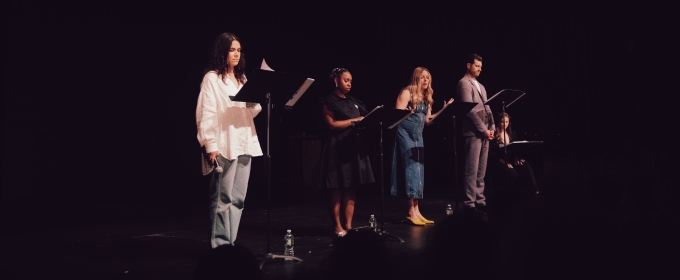 A PLAY ABOUT DAVID MAMET... Reading
Directed by Leslye Headland, the four-person cast featured Abbi Jacobson, Heléne Yorke, Billy Eichner and Paige Gilbert.
A PLAY ABOUT DAVID MAMET... Reading
Directed by Leslye Headland, the four-person cast featured Abbi Jacobson, Heléne Yorke, Billy Eichner and Paige Gilbert.
 On the Opening Night Red Carpet for GINGER TWINSIES
Ginger Twinsies is running off-Broadway at the Orpheum Theatre.
On the Opening Night Red Carpet for GINGER TWINSIES
Ginger Twinsies is running off-Broadway at the Orpheum Theatre.
 Frankie Grande Visits STRANGER THINGS: THE FIRST SHADOW
He saw the show two days in a row this week, bringing his mother Joan to the show to meet the cast as well.
Frankie Grande Visits STRANGER THINGS: THE FIRST SHADOW
He saw the show two days in a row this week, bringing his mother Joan to the show to meet the cast as well.
 First Look at ROLLING THUNDER Off-Broadway
Rolling Thunder will open July 24 at New World Stages.
First Look at ROLLING THUNDER Off-Broadway
Rolling Thunder will open July 24 at New World Stages.
 GINGER TWINSIES Company Celebrates Opening Night
Ginger Twinsies is running off-Broadway at the Orpheum Theatre.
GINGER TWINSIES Company Celebrates Opening Night
Ginger Twinsies is running off-Broadway at the Orpheum Theatre.
 A PLAY ABOUT DAVID MAMET... Reading
Directed by Leslye Headland, the four-person cast featured Abbi Jacobson, Heléne Yorke, Billy Eichner and Paige Gilbert.
A PLAY ABOUT DAVID MAMET... Reading
Directed by Leslye Headland, the four-person cast featured Abbi Jacobson, Heléne Yorke, Billy Eichner and Paige Gilbert.
 Broadway's Carole Demas Makes Solo Cabaret Debut in FIREFLY at 54 Below
The unforgettable show, celebrating the star's long Broadway and TV career, returns 9/6
Broadway's Carole Demas Makes Solo Cabaret Debut in FIREFLY at 54 Below
The unforgettable show, celebrating the star's long Broadway and TV career, returns 9/6
 Frankie Grande Visits STRANGER THINGS: THE FIRST SHADOW
He saw the show two days in a row this week, bringing his mother Joan to the show to meet the cast as well.
Frankie Grande Visits STRANGER THINGS: THE FIRST SHADOW
He saw the show two days in a row this week, bringing his mother Joan to the show to meet the cast as well.
 First Look at ROLLING THUNDER Off-Broadway
Rolling Thunder will open July 24 at New World Stages.
First Look at ROLLING THUNDER Off-Broadway
Rolling Thunder will open July 24 at New World Stages.
 GINGER TWINSIES Company Celebrates Opening Night
Ginger Twinsies is running off-Broadway at the Orpheum Theatre.
GINGER TWINSIES Company Celebrates Opening Night
Ginger Twinsies is running off-Broadway at the Orpheum Theatre.
 A PLAY ABOUT DAVID MAMET... Reading
Directed by Leslye Headland, the four-person cast featured Abbi Jacobson, Heléne Yorke, Billy Eichner and Paige Gilbert.
A PLAY ABOUT DAVID MAMET... Reading
Directed by Leslye Headland, the four-person cast featured Abbi Jacobson, Heléne Yorke, Billy Eichner and Paige Gilbert.
 Broadway's Carole Demas Makes Solo Cabaret Debut in FIREFLY at 54 Below
The unforgettable show, celebrating the star's long Broadway and TV career, returns 9/6
Broadway's Carole Demas Makes Solo Cabaret Debut in FIREFLY at 54 Below
The unforgettable show, celebrating the star's long Broadway and TV career, returns 9/6
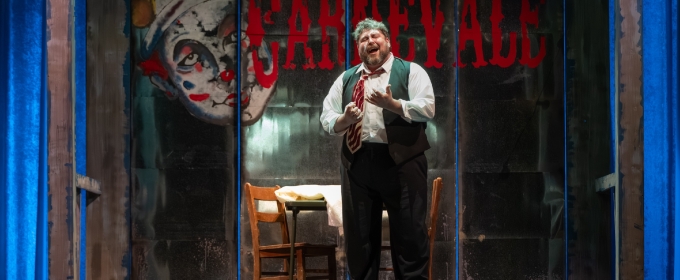 Review: 'JOSEPHINE' & 'PAGLIACCI' at Union Avenue Opera
runs through August 2
Review: 'JOSEPHINE' & 'PAGLIACCI' at Union Avenue Opera
runs through August 2
 First Look at ROLLING THUNDER Off-Broadway
Rolling Thunder will open July 24 at New World Stages.
First Look at ROLLING THUNDER Off-Broadway
Rolling Thunder will open July 24 at New World Stages.
 GINGER TWINSIES Company Celebrates Opening Night
Ginger Twinsies is running off-Broadway at the Orpheum Theatre.
GINGER TWINSIES Company Celebrates Opening Night
Ginger Twinsies is running off-Broadway at the Orpheum Theatre.
 A PLAY ABOUT DAVID MAMET... Reading
Directed by Leslye Headland, the four-person cast featured Abbi Jacobson, Heléne Yorke, Billy Eichner and Paige Gilbert.
A PLAY ABOUT DAVID MAMET... Reading
Directed by Leslye Headland, the four-person cast featured Abbi Jacobson, Heléne Yorke, Billy Eichner and Paige Gilbert.
 Broadway's Carole Demas Makes Solo Cabaret Debut in FIREFLY at 54 Below
The unforgettable show, celebrating the star's long Broadway and TV career, returns 9/6
Broadway's Carole Demas Makes Solo Cabaret Debut in FIREFLY at 54 Below
The unforgettable show, celebrating the star's long Broadway and TV career, returns 9/6
 Review: 'JOSEPHINE' & 'PAGLIACCI' at Union Avenue Opera
runs through August 2
Review: 'JOSEPHINE' & 'PAGLIACCI' at Union Avenue Opera
runs through August 2
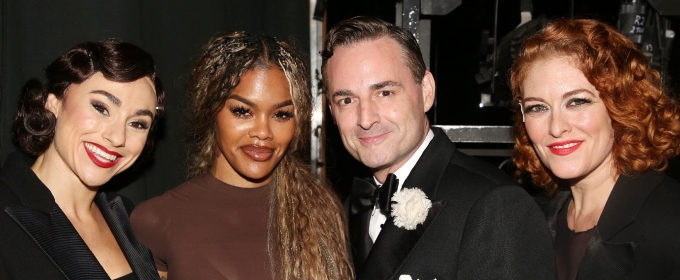 Teyana Taylor & Aaron Pierre Visit CHICAGO on Broadway
Chicago is currently running on Broadway at the Ambassador Theatre.
Teyana Taylor & Aaron Pierre Visit CHICAGO on Broadway
Chicago is currently running on Broadway at the Ambassador Theatre.
 GINGER TWINSIES Company Celebrates Opening Night
Ginger Twinsies is running off-Broadway at the Orpheum Theatre.
GINGER TWINSIES Company Celebrates Opening Night
Ginger Twinsies is running off-Broadway at the Orpheum Theatre.
 A PLAY ABOUT DAVID MAMET... Reading
Directed by Leslye Headland, the four-person cast featured Abbi Jacobson, Heléne Yorke, Billy Eichner and Paige Gilbert.
A PLAY ABOUT DAVID MAMET... Reading
Directed by Leslye Headland, the four-person cast featured Abbi Jacobson, Heléne Yorke, Billy Eichner and Paige Gilbert.
 Broadway's Carole Demas Makes Solo Cabaret Debut in FIREFLY at 54 Below
The unforgettable show, celebrating the star's long Broadway and TV career, returns 9/6
Broadway's Carole Demas Makes Solo Cabaret Debut in FIREFLY at 54 Below
The unforgettable show, celebrating the star's long Broadway and TV career, returns 9/6
 Review: 'JOSEPHINE' & 'PAGLIACCI' at Union Avenue Opera
runs through August 2
Review: 'JOSEPHINE' & 'PAGLIACCI' at Union Avenue Opera
runs through August 2
 Teyana Taylor & Aaron Pierre Visit CHICAGO on Broadway
Chicago is currently running on Broadway at the Ambassador Theatre.
Teyana Taylor & Aaron Pierre Visit CHICAGO on Broadway
Chicago is currently running on Broadway at the Ambassador Theatre.
 On the Red Carpet for A CHORUS LINE's 50th Anniversary
The event benefitted the Entertainment Community Fund’s programs serving dance professionals.
On the Red Carpet for A CHORUS LINE's 50th Anniversary
The event benefitted the Entertainment Community Fund’s programs serving dance professionals.
 A PLAY ABOUT DAVID MAMET... Reading
Directed by Leslye Headland, the four-person cast featured Abbi Jacobson, Heléne Yorke, Billy Eichner and Paige Gilbert.
A PLAY ABOUT DAVID MAMET... Reading
Directed by Leslye Headland, the four-person cast featured Abbi Jacobson, Heléne Yorke, Billy Eichner and Paige Gilbert.
 Broadway's Carole Demas Makes Solo Cabaret Debut in FIREFLY at 54 Below
The unforgettable show, celebrating the star's long Broadway and TV career, returns 9/6
Broadway's Carole Demas Makes Solo Cabaret Debut in FIREFLY at 54 Below
The unforgettable show, celebrating the star's long Broadway and TV career, returns 9/6
 Review: 'JOSEPHINE' & 'PAGLIACCI' at Union Avenue Opera
runs through August 2
Review: 'JOSEPHINE' & 'PAGLIACCI' at Union Avenue Opera
runs through August 2
 Teyana Taylor & Aaron Pierre Visit CHICAGO on Broadway
Chicago is currently running on Broadway at the Ambassador Theatre.
Teyana Taylor & Aaron Pierre Visit CHICAGO on Broadway
Chicago is currently running on Broadway at the Ambassador Theatre.
 On the Red Carpet for A CHORUS LINE's 50th Anniversary
The event benefitted the Entertainment Community Fund’s programs serving dance professionals.
On the Red Carpet for A CHORUS LINE's 50th Anniversary
The event benefitted the Entertainment Community Fund’s programs serving dance professionals.
 HAMILTON Cast Joins Talkback at Hudson Yards
Events are all free and open to the public.
HAMILTON Cast Joins Talkback at Hudson Yards
Events are all free and open to the public.
 Broadway's Carole Demas Makes Solo Cabaret Debut in FIREFLY at 54 Below
The unforgettable show, celebrating the star's long Broadway and TV career, returns 9/6
Broadway's Carole Demas Makes Solo Cabaret Debut in FIREFLY at 54 Below
The unforgettable show, celebrating the star's long Broadway and TV career, returns 9/6
 Review: 'JOSEPHINE' & 'PAGLIACCI' at Union Avenue Opera
runs through August 2
Review: 'JOSEPHINE' & 'PAGLIACCI' at Union Avenue Opera
runs through August 2
 Teyana Taylor & Aaron Pierre Visit CHICAGO on Broadway
Chicago is currently running on Broadway at the Ambassador Theatre.
Teyana Taylor & Aaron Pierre Visit CHICAGO on Broadway
Chicago is currently running on Broadway at the Ambassador Theatre.
 On the Red Carpet for A CHORUS LINE's 50th Anniversary
The event benefitted the Entertainment Community Fund’s programs serving dance professionals.
On the Red Carpet for A CHORUS LINE's 50th Anniversary
The event benefitted the Entertainment Community Fund’s programs serving dance professionals.
 HAMILTON Cast Joins Talkback at Hudson Yards
Events are all free and open to the public.
HAMILTON Cast Joins Talkback at Hudson Yards
Events are all free and open to the public.
 Photo: First Look at DOLLY: A TRUE ORIGINAL MUSICAL
Get a First look at Carrie St. Louis as ‘Dolly,’ Katie Rose Clarke as ‘Dolly Parton,’ and Quinn Titcomb as ‘Little Dolly.’
Photo: First Look at DOLLY: A TRUE ORIGINAL MUSICAL
Get a First look at Carrie St. Louis as ‘Dolly,’ Katie Rose Clarke as ‘Dolly Parton,’ and Quinn Titcomb as ‘Little Dolly.’
 Review: 'JOSEPHINE' & 'PAGLIACCI' at Union Avenue Opera
runs through August 2
Review: 'JOSEPHINE' & 'PAGLIACCI' at Union Avenue Opera
runs through August 2
 Teyana Taylor & Aaron Pierre Visit CHICAGO on Broadway
Chicago is currently running on Broadway at the Ambassador Theatre.
Teyana Taylor & Aaron Pierre Visit CHICAGO on Broadway
Chicago is currently running on Broadway at the Ambassador Theatre.
 On the Red Carpet for A CHORUS LINE's 50th Anniversary
The event benefitted the Entertainment Community Fund’s programs serving dance professionals.
On the Red Carpet for A CHORUS LINE's 50th Anniversary
The event benefitted the Entertainment Community Fund’s programs serving dance professionals.
 HAMILTON Cast Joins Talkback at Hudson Yards
Events are all free and open to the public.
HAMILTON Cast Joins Talkback at Hudson Yards
Events are all free and open to the public.
 Photo: First Look at DOLLY: A TRUE ORIGINAL MUSICAL
Get a First look at Carrie St. Louis as ‘Dolly,’ Katie Rose Clarke as ‘Dolly Parton,’ and Quinn Titcomb as ‘Little Dolly.’
Photo: First Look at DOLLY: A TRUE ORIGINAL MUSICAL
Get a First look at Carrie St. Louis as ‘Dolly,’ Katie Rose Clarke as ‘Dolly Parton,’ and Quinn Titcomb as ‘Little Dolly.’
 First Look at EVITA at The Muny
Performances run July 18-24.
First Look at EVITA at The Muny
Performances run July 18-24.
 Teyana Taylor & Aaron Pierre Visit CHICAGO on Broadway
Chicago is currently running on Broadway at the Ambassador Theatre.
Teyana Taylor & Aaron Pierre Visit CHICAGO on Broadway
Chicago is currently running on Broadway at the Ambassador Theatre.
 On the Red Carpet for A CHORUS LINE's 50th Anniversary
The event benefitted the Entertainment Community Fund’s programs serving dance professionals.
On the Red Carpet for A CHORUS LINE's 50th Anniversary
The event benefitted the Entertainment Community Fund’s programs serving dance professionals.
 HAMILTON Cast Joins Talkback at Hudson Yards
Events are all free and open to the public.
HAMILTON Cast Joins Talkback at Hudson Yards
Events are all free and open to the public.
 Photo: First Look at DOLLY: A TRUE ORIGINAL MUSICAL
Get a First look at Carrie St. Louis as ‘Dolly,’ Katie Rose Clarke as ‘Dolly Parton,’ and Quinn Titcomb as ‘Little Dolly.’
Photo: First Look at DOLLY: A TRUE ORIGINAL MUSICAL
Get a First look at Carrie St. Louis as ‘Dolly,’ Katie Rose Clarke as ‘Dolly Parton,’ and Quinn Titcomb as ‘Little Dolly.’
 First Look at EVITA at The Muny
Performances run July 18-24.
First Look at EVITA at The Muny
Performances run July 18-24.
 Scherzinger and the Cast of SUNSET BLVD. Take Final Bow
The show played its final performance on July 20 at the St. James Theatre following 20 previews and 312 regular performances.
Scherzinger and the Cast of SUNSET BLVD. Take Final Bow
The show played its final performance on July 20 at the St. James Theatre following 20 previews and 312 regular performances.
 On the Red Carpet for A CHORUS LINE's 50th Anniversary
The event benefitted the Entertainment Community Fund’s programs serving dance professionals.
On the Red Carpet for A CHORUS LINE's 50th Anniversary
The event benefitted the Entertainment Community Fund’s programs serving dance professionals.
 HAMILTON Cast Joins Talkback at Hudson Yards
Events are all free and open to the public.
HAMILTON Cast Joins Talkback at Hudson Yards
Events are all free and open to the public.
 Photo: First Look at DOLLY: A TRUE ORIGINAL MUSICAL
Get a First look at Carrie St. Louis as ‘Dolly,’ Katie Rose Clarke as ‘Dolly Parton,’ and Quinn Titcomb as ‘Little Dolly.’
Photo: First Look at DOLLY: A TRUE ORIGINAL MUSICAL
Get a First look at Carrie St. Louis as ‘Dolly,’ Katie Rose Clarke as ‘Dolly Parton,’ and Quinn Titcomb as ‘Little Dolly.’
 First Look at EVITA at The Muny
Performances run July 18-24.
First Look at EVITA at The Muny
Performances run July 18-24.
 Scherzinger and the Cast of SUNSET BLVD. Take Final Bow
The show played its final performance on July 20 at the St. James Theatre following 20 previews and 312 regular performances.
Scherzinger and the Cast of SUNSET BLVD. Take Final Bow
The show played its final performance on July 20 at the St. James Theatre following 20 previews and 312 regular performances.
 Robyn Hurder, Andrew Durand, and More Star in HIGH SOCIETY at Ogunquit Playhouse
The production runs July 24 through August 23 in Ogunquit, Maine.
Robyn Hurder, Andrew Durand, and More Star in HIGH SOCIETY at Ogunquit Playhouse
The production runs July 24 through August 23 in Ogunquit, Maine.
 HAMILTON Cast Joins Talkback at Hudson Yards
Events are all free and open to the public.
HAMILTON Cast Joins Talkback at Hudson Yards
Events are all free and open to the public.
 Photo: First Look at DOLLY: A TRUE ORIGINAL MUSICAL
Get a First look at Carrie St. Louis as ‘Dolly,’ Katie Rose Clarke as ‘Dolly Parton,’ and Quinn Titcomb as ‘Little Dolly.’
Photo: First Look at DOLLY: A TRUE ORIGINAL MUSICAL
Get a First look at Carrie St. Louis as ‘Dolly,’ Katie Rose Clarke as ‘Dolly Parton,’ and Quinn Titcomb as ‘Little Dolly.’
 First Look at EVITA at The Muny
Performances run July 18-24.
First Look at EVITA at The Muny
Performances run July 18-24.
 Scherzinger and the Cast of SUNSET BLVD. Take Final Bow
The show played its final performance on July 20 at the St. James Theatre following 20 previews and 312 regular performances.
Scherzinger and the Cast of SUNSET BLVD. Take Final Bow
The show played its final performance on July 20 at the St. James Theatre following 20 previews and 312 regular performances.
 Robyn Hurder, Andrew Durand, and More Star in HIGH SOCIETY at Ogunquit Playhouse
The production runs July 24 through August 23 in Ogunquit, Maine.
Robyn Hurder, Andrew Durand, and More Star in HIGH SOCIETY at Ogunquit Playhouse
The production runs July 24 through August 23 in Ogunquit, Maine.
 Billy Porter and Marisha Wallace in CABARET
Porter and Wallace begin performances on Tuesday, July 22.
Billy Porter and Marisha Wallace in CABARET
Porter and Wallace begin performances on Tuesday, July 22.
Industry
Get Broadway's #1 Newsletter

West End

BWW Q&A: Ned Van Zandt of Del Valle at The Orchard Project
Del Valle: A True Tale of Sex, Drugs, Rock and Roll… and Redemption will be performed in the Dairy Room in Bristo Square from 6 – 25 August.
Del Valle: A True Tale of Sex, Drugs, Rock and Roll… and Redemption will be performed in the Dairy Room in Bristo Square from 6 – 25 August.
New York City

Beth Leavel, Casey Likes and More to Perform at 54 Below in August
The month will also feature Natasha Yvette Williams and many more!
The month will also feature Natasha Yvette Williams and many more!
United States

BWW Q&A: Lauren Maria Medina on WEST SIDE STORY at Maine State Music Theatre
Lauren Maria Medina makes her MSMT debut with West Side Story.
Lauren Maria Medina makes her MSMT debut with West Side Story.
International

Edinburgh International Festival Launches 2025 Edition With Global Artists
Over 2,000 artists from 42 countries unite under the 2025 theme “The Truth We Seek”
Over 2,000 artists from 42 countries unite under the 2025 theme “The Truth We Seek”



